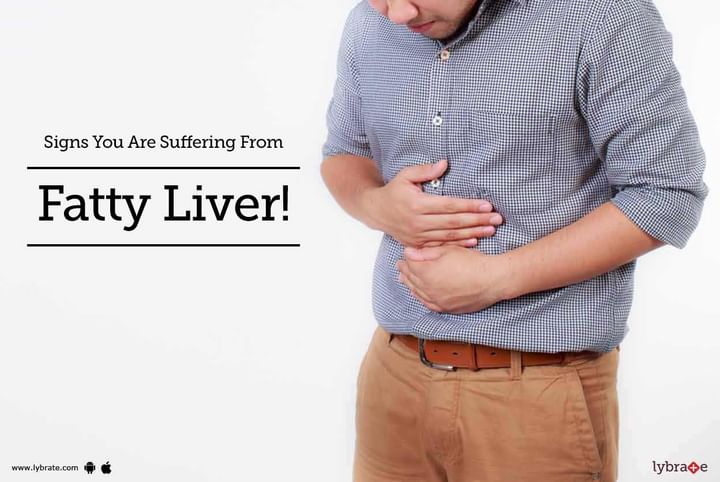Signs You Are Suffering From Fatty Liver!
The liver is a key organ in metabolism and will have some amount of fat. However, excessive fat accumulation in the liver can be abnormal and is referred to as fatty liver. If the fat content exceeds anything more than 5% to 10% of the liver’s weight, it would be referred to as fatty liver.
Types - There are mainly two types based on causes:
- Alcoholic fatty liver: This is very common in people who consume excessive amounts of alcohol. Even a one-off instance of binge drinking can cause increased fat accumulation in the liver, but it would not produce any symptoms though. Preexisting hepatitis, pregnancy, obesity, and genetic predisposition may also lead to alcoholic liver disease.
- Non-alcoholic liver disease: This is the less common type of fatty liver, and there would be no alcoholic abuse history here. However, there could be genetic predisposition, obesity, autoimmune liver disease, malnutrition, which can lead to this condition.
Symptoms
Fatty liver disease is a chronic condition with insidious onset (meaning to say, the exact time of onset cannot be pinpointed). However, as the disease condition progresses, symptoms will become evident, which can trigger a medical evaluation to identify the fatty liver. Some of the symptoms include:
- Excessive fatigue and weakness
- Unexplained weight loss
- Loss of appetite
- Nausea
- Trouble focusing and concentrating
- Impaired judgment
- Constant, slow enlargement of the liver can cause pain in the right upper quadrant of the abdomen (where the liver is)
- There could be jaundice, where the skin and the white of the eyes turn pale yellow
- Symptoms of liver failure, including increased levels of proteins in the chemical tests.
Diagnosis
As noted earlier, it is not easy to identify liver disease, as there are no specific symptoms. However, the above symptoms could point to a potential fatty liver.
- Blood tests, especially for liver enzymes
- Ultrasound, where the liver is imaged to look for any structural changes
- Biopsy, where liver tissue is extracted to confirm the diagnosis of fatty liver
Treatment
There is no specific treatment for fatty liver. It can be managed through the following, where symptoms reduce in severity, and overall prognosis improves.
- Diabetes control: There is a relation between how well diabetes is controlled and severity of fatty liver. Improving diabetes control ensures fatty liver does not progress.
- Alcohol: Cutting down or even better quitting alcohol, definitely helps improve symptoms. If it is alcohol induced fatty liver, alcohol should be stopped.
- Weight management: Obesity and fatty liver are related, so weight management is essential.
- Healthy diet: Eating a healthy diet and regular exercise regimen also helps improve symptoms of fatty liver.



+1.svg)
